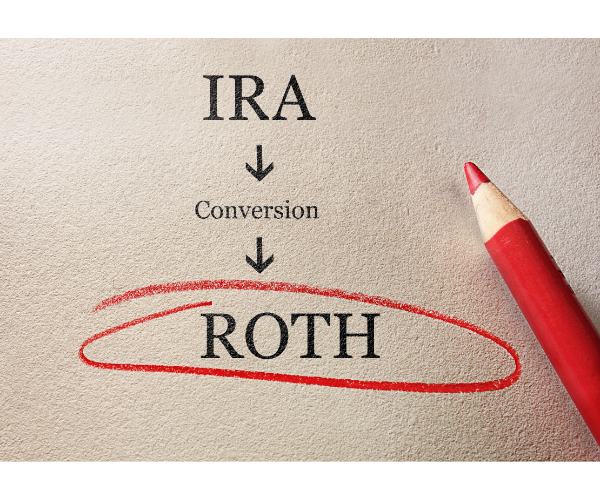Hello, Cart! You seem to be in front of my horse. In looking at my newsletter archives (because I’ve read all of the Agatha Christie mysteries twice and needed something exciting to fill the void), it looks like I’ve addressed some specifics about Roth conversions in past blogs, but never talked about the basics.
First, what is a Roth conversion? It is a transaction where you move funds from a Traditional IRA (or other eligible retirement accounts, such as a 401(k)) and into a Roth IRA. Traditional IRAs are funded with pre-tax dollars, and contributions grow tax-deferred until withdrawal. On the other hand, Roth IRAs are funded with after-tax dollars, and qualified withdrawals are tax-free.
When you convert funds from a traditional IRA to a Roth IRA, you are prepaying the income taxes on that amount. The converted amount is added to your taxable income for the year of the conversion. Beware, Roth conversions look the same as earned income on your taxes. If you aren’t careful, you could throw yourself into a higher tax bracket.
What about IRS early withdrawal penalties? Unlike early withdrawals from traditional IRAs, Roth conversions do not incur the usual 10% early withdrawal penalty, even if you’re under 59½. You just have to be ready to pay the tax bill.
Pay attention to the deadlines around Roth conversion. You must do them by December 31st of the tax year in which you want to realize the income. This isn’t like an IRA contribution where you have until April 15th of the following year.
It might be beneficial to convert during a year when your income is lower, potentially reducing the tax hit. Additionally, if you anticipate being in a higher tax bracket in the future, converting sooner rather than later could be advantageous.
Last, but not least, if you are considering a Roth conversion, make sure you have the money in a non-retirement account ready to pay the extra taxes. If you take extra money out of your IRA to pay the taxes for the Roth conversion, you will be subject to taxes and penalties on the money you withdraw to pay taxes. Kind of like a snake eating its tail.
Next week, check out the pros and cons of doing Roth conversions.



